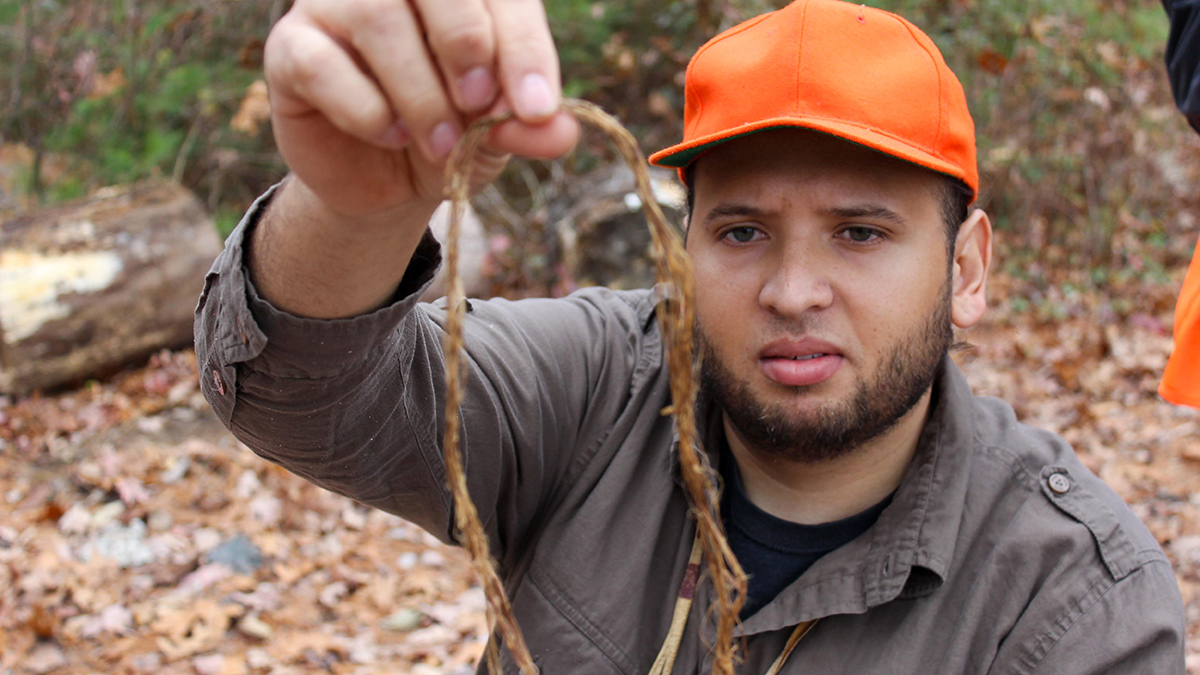Cassius Spears Jr.’s lifelong partnership with the living soil is rooted in the Narragansett Indian Tribe’s cultural ties to the land and subsistence way of life.
Spears grew up on his family’s ancestral land in what is now Rhode Island, hunting, foraging, and learning the traditional place knowledge of his ancestors. As a teenager, he attended community meetings in which Narragansett people discussed concerns about degradation across important landscapes and waters and how it affected harvesting practices and ways of life.
“Witnessing that firsthand concern, as well as witnessing my family’s traditional knowledge of place and what that looks like within landscapes and waterways, inspired me to go down the road of conservation,” he said.
Spears studied environmental conservation at the University of Rhode Island in South Kingstown and the University of Notre Dame in Indiana. In school, he frequently encountered scientific concepts that clashed with what his people’s ecological knowledge holds true.
“Early in my education, I was taught to think about soil in physical, taxonomical, or inert ways, which ran [in] conflict with traditional knowledge of soil as living or life-giving,” he said.
“When you live with the land, you inherently build a relationship.”
On soil and many ecological concepts, Spears said that he has seen a greater acceptance in scientific understanding. “Now soil health concepts have aligned with Traditional Ecological Knowledge and perceive soil as a vital living ecosystem,” he said.
In his career as a soil conservationist with the U.S. Department of Agriculture’s Natural Resources Conservation Service office in Rhode Island, Spears has worked to deepen the understanding between these sources of ecological knowledge. He said that local farmers and other land stewards have been especially receptive to incorporating Traditional Ecological Knowledge into their practices.
“When you live with the land, you inherently build a relationship,” Spears said. “Many farmers understand this; connecting with natural processes every season creates a tangible bond with the land and a sense of responsibility to manage it in a good way.”
Spears takes great pride in the relationships his team has developed with local communities, partnering on projects that improve agricultural soil conservation, restore habitats, and fix riparian forest buffers. He said that having trust and patience, as well as immersing yourself in a community, is the key to building long-lasting and successful collaborations.
“Change doesn’t happen overnight, and it’s essential to listen to and engage with community members genuinely,” he said. “Seeing our local communities lead conservation work inspires me and fills me with hope for future generations.”
—Kimberly M. S. Cartier (@astrokimcartier.bsky.social), Staff Writer
This profile is part of a special series in our August 2025 issue on science careers.


